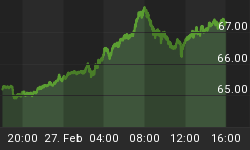On April 20 the IMF announced it had raised about U.S. $435 billion to further assist with ongoing Eurozone bank and Sovereign Debt issues that plague the 17 country Euro consortium.
An April 20 article, IMF 'firewall': Who gave and how much, set out a list of the countries that contributed funds to the just completed IMF Funding. The following table sets out those contributions by country and by the Eurozone, along with the 2011 GDP's of those countries and the Eurozone as reported separately by the IMF (as summarized on Wikipedia).
Country | Contribution (U.S.$ billions) | % | 2011 GDP (IMF) - (U.S.$ trillions) | % |
| Australia | 7 | 1.6 | 1.5 | 4.1 |
| China, Russia and others | 72 | 16.6 | 9.2 (+ others) | 25.1 |
| Czech Republic | 2 | 0.5 | 0.2 | 0.5 |
| Denmark | 7 | 1.6 | 0.3 | 0.8 |
| Eurozone | 200 | 46.1 | 13.1 | 35.7 |
| Japan | 60 | 13.8 | 5.9 | 16.1 |
| Korea | 15 | 3.5 | 1.1 | 3.0 |
| Norway | 9.3 | 2.1 | 0.5 | 1.4 |
| Poland | 8 | 1.8 | 0.5 | 1.4 |
| Saudi Arabia | 15 | 3.5 | 0.6 | 1.6 |
| Singapore | 4 | 0.9 | 0.3 | 0.8 |
| Sweden | 10 | 2.3 | 0.5 | 1.4 |
| Switzerland | 10 | 2.3 | 0.6 | 1.6 |
| United Kingdom | 15 | 3.5 | 2.4 | 6.5 |
| Totals | 434.3 | 100.0 | 36.7 | 100.0 |
Commentary: In the context of developed country economic recover generally, the Eurozone is the current principal focus of concern, followed by ongoing concerns over China's GDP growth in 2012 and beyond.
The obvious outlier contributors when contribution % is contrasted with 2011 GDP % are:
- Australia, China (grouped with Russia and others), Japan, and the United Kingdom, who all contributed disproportionately more than their respective % of GDP; and,
- The Eurozone countries themselves, Saudi Arabia, Sweden, and Switzerland, who all contributed disproportionately less than their respective % of GDP. That has to be qualified, as within the Eurozone itself it is likely that Germany and perhaps other countries contributed more than their respective proportionate share of the overall Eurozone contribution.
Other observations:
- Canada and the United States are 'notably absent contributors';
- Canada may not have participated 'out of principal', which seems entirely possible given the position taken this past week by the Canadian Finance Minister on IMF funding and related voting by IMF members - see accompanying articles;
- the U.S. reasons for not participating may be more complex, this being a Presidential election year, and having regard to the current state of U.S. Government finances. However, one must ask 'what is a few more billion among friends' in this environment - particularly as the U.S. is the IMF's largest 'shareholder';
- Eventually, 'a few more billion among friends' has to 'get very tired' and none Eurozone countries have to 'run out' of those 'billions'; and,
- the Eurozone and the other developed countries now have a few more 'Humpty Dumpty cracks', and are sitting ever closer to the edge of the wall. There has to be a limit to Humpty's ability to lean back and keep his center of gravity on the 'right side' of the wall's edge.
Finally, something to think about no matter what your age, but something that those of you over 60 ought to be able to best identify with.
Recently a friend and I were discussing the high interest rates and inflation environment in the U.S. and Canada in the early 1980's. We both recalled how then one million dollars was a 'lot of money' in either currency. Think hard about that, given that only thirty years later references to 'billions' and 'trillions' are commonplace in every day's media reports, and are used without particular thought by many as to just how big those numbers are - and the implications of them.
Over the years I have purchased shoes made in England by a firm named 'Eddie Green'. I love the 'Eddie Green Company' slogan: "Bootmakers to the Few". The shoes are as good as the slogan. One pair I bought has been resoled three times, and still looks and wears 'as good as new' - which lends support to the old saying 'one gets what one pays for'. With respect to 'billions' and 'trillions' of dollars, be "One of the Few" who thinks about what that means in the context of the economic environment we live in - an perhaps more importantly the one our children and grandchildren have inherited.
IMF 'firewall': Who gave and how much
Source: The Telegraph, April 21, 2012 Reading time: 5 minutes
Also read: IMF Raises $430 Billion To Fend Off Future Problems
Source: NPR, April 20, 2012 Reading time: 3 minutes
Also read: Statement by IMF Managing Director Christine Lagarde on Pledges
Source: International Monetary Fund, April 20, 2012 Reading time: 3 minutes
Also read: BRICS Want Bigger IMF Role
Source: The Fiscal Times, Walter Brandimarte and Louise Egan (from Reuters) April 20, 2012 Reading time: 4 minutes















